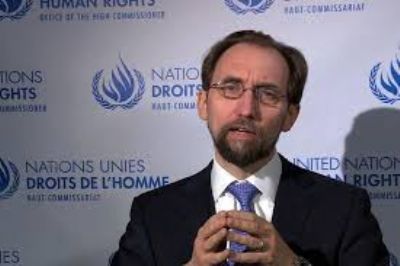"The United Nations Independent Expert on the promotion of a democratic and equitable international order, Alfred D. Zayas, marked the occasion of the Manning commutation to encourage all Governments to protect whistleblowers instead of persecuting them...At the same time, ... the record of the OHCHR [Office of the High Commissioner of Human Rights] in dealing with its own whistleblowers is less exemplary than one would expect.
Anders Kompass and Miranda Brown, both of whom served in senior positions at the OHCHR and helped expose the sexual abuse and exploitation of children in the Central African Republic (CAR), have suffered harassment and defamation at the hands of Zeid Ra'ad al Hussein, the High Commissioner for Human Rights. After finding that Kompass had informed the French government of abuses allegedly committed by their forces in the CAR, Zeid first tried to force his resignation, and then tried to suspend him.
When neither measure succeeded, Zeid appealed to the senior oversight official at UN Headquarters in New York, who placed Kompass investigated for leaking.
After Brown supported Kompass, she found that her contract was not renewed while she was on medical leave for a service-incurred illness.
Kompass finally left OHCHR, unable to continue working with Zeid, a man who manifestly failed to protect either the child victims of sexual abuse or the whistleblowers who sought to help them. Brown remains unemployed, seeking compensation and reinstatement through the UN Dispute Tribunal.
As the US Congress considers the credibility of the United Nations' pledge to support and protect the whistleblowers in its ranks from retaliation, incoming State Department officials may want to revisit the conduct of the High Commissioner when confronted with whistleblowers at OHCHR.
In this situation, as in most situations at the United Nations, the old adage applies: 'Watch what they do, not what they say.'"
January 23, 2017
UN Human Rights Office Lauds Chelsea Manning Release But Retaliates Against Own Whistleblowers

UN High Commissioner for Human Rights Zeid Raad al Hussein (File photo)
Date
January 23, 2017
Title
UN’s OHCHR Commends Chelsea Manning’s Commuted Sentence, Continues Retaliation Against Its Own Whistleblowers, Government Accountability Project
Author(s)
Bea Edwards
Original Source
